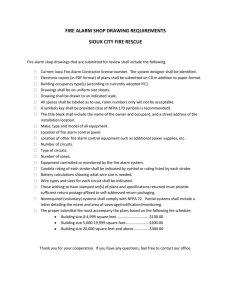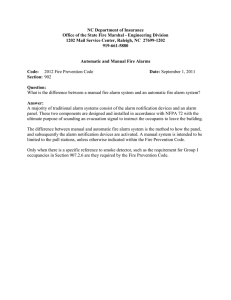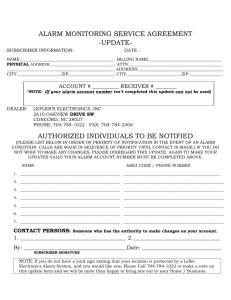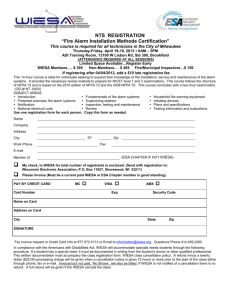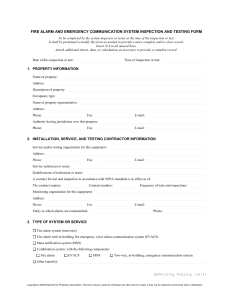Fire Alarm Maintenance
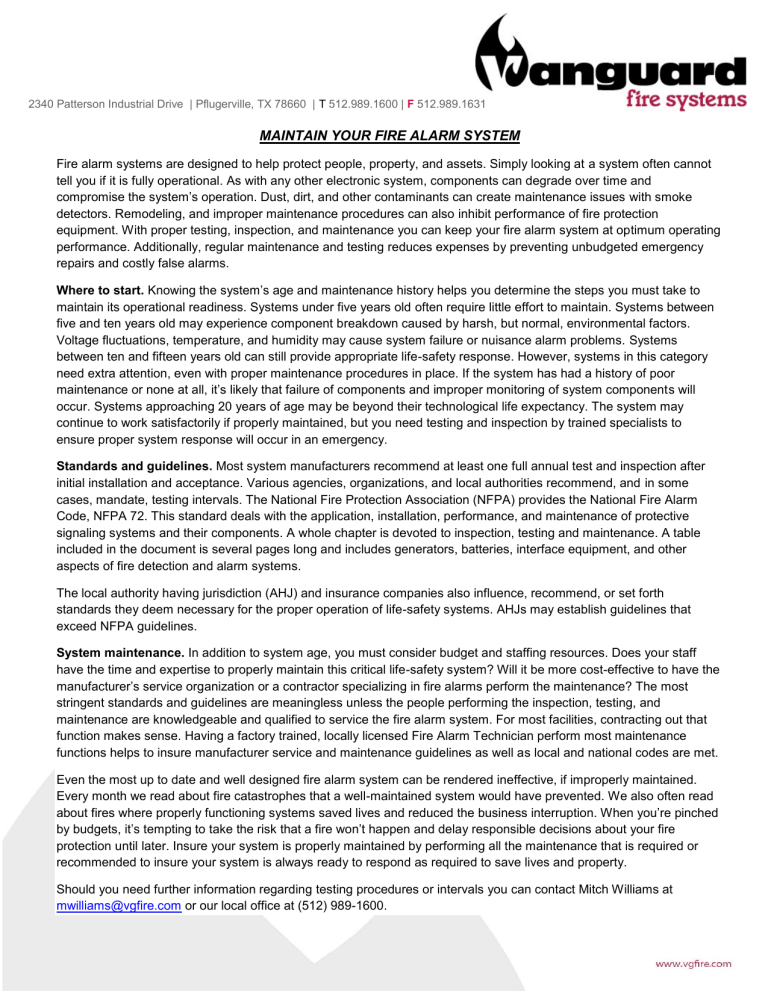
2340 Patterson Industrial Drive | Pflugerville, TX 78660 | T 512.989.1600 | F 512.989.1631
MAINTAIN YOUR FIRE ALARM SYSTEM
Fire alarm systems are designed to help protect people, property, and assets. Simply looking at a system often cannot tell you if it is fully operational. As with any other electronic system, components can degrade over time and compromise the system’s operation. Dust, dirt, and other contaminants can create maintenance issues with smoke detectors. Remodeling, and improper maintenance procedures can also inhibit performance of fire protection equipment. With proper testing, inspection, and maintenance you can keep your fire alarm system at optimum operating performance. Additionally, regular maintenance and testing reduces expenses by preventing unbudgeted emergency repairs and costly false alarms.
Where to start.
Knowing the system’s age and maintenance history helps you determine the steps you must take to maintain its operational readiness. Systems under five years old often require little effort to maintain. Systems between five and ten years old may experience component breakdown caused by harsh, but normal, environmental factors.
Voltage fluctuations, temperature, and humidity may cause system failure or nuisance alarm problems. Systems between ten and fifteen years old can still provide appropriate life-safety response. However, systems in this category need extra attention, even with proper maintenance procedures in place. If the system has had a history of poor maintenance or none at all, it’s likely that failure of components and improper monitoring of system components will occur. Systems approaching 20 years of age may be beyond their technological life expectancy. The system may continue to work satisfactorily if properly maintained, but you need testing and inspection by trained specialists to ensure proper system response will occur in an emergency.
Standards and guidelines.
Most system manufacturers recommend at least one full annual test and inspection after initial installation and acceptance. Various agencies, organizations, and local authorities recommend, and in some cases, mandate, testing intervals. The National Fire Protection Association (NFPA) provides the National Fire Alarm
Code, NFPA 72. This standard deals with the application, installation, performance, and maintenance of protective signaling systems and their components. A whole chapter is devoted to inspection, testing and maintenance. A table included in the document is several pages long and includes generators, batteries, interface equipment, and other aspects of fire detection and alarm systems.
The local authority having jurisdiction (AHJ) and insurance companies also influence, recommend, or set forth standards they deem necessary for the proper operation of life-safety systems. AHJs may establish guidelines that exceed NFPA guidelines.
System maintenance.
In addition to system age, you must consider budget and staffing resources. Does your staff have the time and expertise to properly maintain this critical life-safety system? Will it be more cost-effective to have the manufacturer’s service organization or a contractor specializing in fire alarms perform the maintenance? The most stringent standards and guidelines are meaningless unless the people performing the inspection, testing, and maintenance are knowledgeable and qualified to service the fire alarm system. For most facilities, contracting out that function makes sense. Having a factory trained, locally licensed Fire Alarm Technician perform most maintenance functions helps to insure manufacturer service and maintenance guidelines as well as local and national codes are met.
Even the most up to date and well designed fire alarm system can be rendered ineffective, if improperly maintained.
Every month we read about fire catastrophes that a well-maintained system would have prevented. We also often read about fires where properly functioning systems saved lives and reduced the business interruption. When you’re pinched by budgets, it’s tempting to take the risk that a fire won’t happen and delay responsible decisions about your fire protection until later. Insure your system is properly maintained by performing all the maintenance that is required or recommended to insure your system is always ready to respond as required to save lives and property.
Should you need further information regarding testing procedures or intervals you can contact Mitch Williams at mwilliams@vgfire.com
or our local office at (512) 989-1600.
